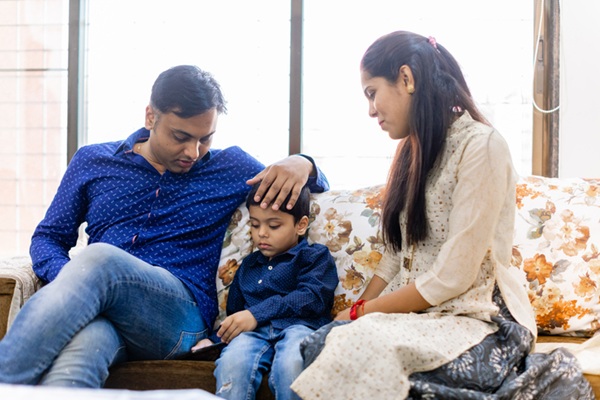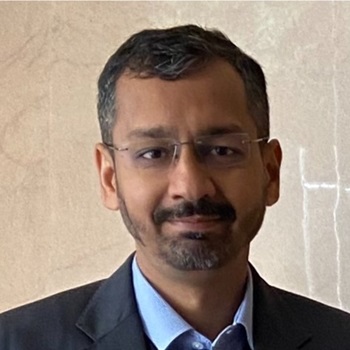.png)
Sarci-Sense: Then and Now and Somewhere in Between
Parenting, whether in the 1980s or 2020s, is still a complicated act of hope. It is believing that the child you raise will one day understand the parent you tried to be.


Dr. Srinath Sridharan is a Corporate Advisor & Independent Director on Corporate Boards. He is the author of ‘Family and Dhanda’.
July 13, 2025 at 1:03 PM IST
There was a time when we didn’t ask our parents why. Not because we agreed with them but because it wasn’t considered an option. Authority came dressed in a white cotton saree or a rolled-up newspaper or a no-nonsense glance over spectacles. Questioning it was like challenging the laws of gravity. You didn’t do it. You just did what you were told, sometimes grumbling under your breath, often nursing the emotional equivalent of a stubbed toe, but always following the script.
That script has changed. Dramatically. Today’s parents don’t just get questioned. They get counter-argued, fact-checked, emotionally guilt-tripped, and occasionally called out for being “unfair” because they dared suggest that three hours of screen time might be too much. We’re told we must explain everything. We must “have a conversation.” We must be mindful of tone. We must validate feelings. And we must do it all without raising our voices, slamming doors, or invoking “because I said so.”
And so we try. We ask them what’s bothering them. We apologise when we lose our tempers. We google terms they use and try to keep up with their slang. We watch Netflix shows we don’t enjoy and pretend to relate to their memes. Somewhere in this performance of cool parenting, many of us feel like reluctant extras in a show that is mostly written in another language.
It isn’t that today’s kids are worse. They are, in many ways, brighter, sharper, and more emotionally aware than we ever were. But they are also overwhelmed, overstimulated, and burdened by a world that keeps shouting at them from a thousand screens. Their confidence often masks confusion. Their certainty is occasionally a well-styled coping mechanism. And their rebellion is not against us as much as it is against the chaos they’re expected to manage without a manual.
We, on the other hand, grew up in the age of vague threats. “Wait till your father gets home” was enough to recalibrate your soul. No one explained what “you’ll see what happens” actually meant, but the sheer menace in that ambiguity kept us obedient. We didn’t get punished so much as we got disciplined. That discipline sometimes involved slaps, sometimes prolonged silence, and often, public embarrassment. Our parents did not ask how we felt. They told us what we should feel. And we didn’t debate it. Not because we lacked emotion, but because emotion didn’t come with a microphone.
Now we’re in this peculiar place. We want to raise better humans than we were. We want to fix what felt wrong when we were children. But we’re also confused because the pendulum has swung so far that we often find ourselves asking permission to parent. We are afraid to say no because we’ve been told that no stifles individuality. We hesitate to correct them because correction feels like criticism. And we are terrified of damaging their fragile sense of self-worth, even when they have no problem steamrolling ours during family arguments.
The challenge is not that parenting has become harder. It’s that it has become more performative. Earlier, being a parent meant feeding, clothing, educating, and protecting your child. Now it means all of that and also being a life coach, a therapist, a nutritionist, a tech support executive, and an unpaid Uber driver. We are expected to be calm, wise, present, empathetic, well-read, self-aware, and funny—all while managing a job, ageing parents, rising EMIs, and a body that aches in new and interesting ways each morning.
And yet, despite all of this, we keep trying. We do not want to raise children who fear us. We want them to respect us and hopefully like us just a little. We do not want them to hide their mistakes. We want them to trust that we will understand. We do not want them to carry unresolved baggage into adulthood. We want them to feel heard, seen, and supported, even when they don’t make it easy.
What we often forget is that they are also watching us grow. Just as we’re trying to understand them, they’re trying to make sense of us. They see us falter, fail, and fumble through our midlife, and maybe one day they’ll realise that their parents were human too.
We may have grown up fearing the slipper, but we do not want to pass that slipper down. We want to pass down stories, values, warmth, and the ability to laugh at oneself. And if that means sitting through long explanations of why a video game matters or agreeing to a family dance reel that will never be posted, then so be it.
Because while the script has changed and the roles have evolved, the core remains the same. Parenting, whether in the 1980s or 2020s, is still a complicated act of hope. It is believing that the child you raise will one day understand the parent you tried to be.
And if they don’t, well, we still have our group chats and blood pressure pills. Some traditions, thankfully, remain unchanged.
Click to read other stories from the Sarci-Sense series



